I missed telling a couple of stories that occurred yesterday, so let me backtrack. I was driving down a dirt road with Kafubu while visiting bore holes in a remote area when the driver pointed out a young girl to me. This girl was short in stature and could not have been more than 6 years old. What struck me was her determined look as she strode down the road. The driver mentioned that she was walking to school four kilometres (two and a half miles) down the road and would walk the same distance after school to get home. My heart went out to the little girl as she paced that journey by herself. That look of determination will not leave my mind anytime soon. I could not help but think of the mother of that little girl and the trust that she has in the Lord that her daughter would get to school and back safely each day. The faith that these people have is incredible.
I also forgot to mention that yesterday afternoon consisted of planting a small garden complete with a bucket drip irrigation kit. The plot will be used by Northrise to determine what grows well in Zambia and may be used in the future to aid locals when buying seed. Also, I was with Kafubu in the morning while the rest of the group was able to visit various classes at Northrise and experience Zambian teaching. They came away impressed with the classes as well as the student’s attentiveness and dedication for learning. As far as learning on a whole our group has determined that students at Dordt spend much more time out of class working on papers and assignments than students at Northrise. We are a little bit concerned for the five students that will be taking classes at Dordt in Fall 2011 and hope that classes at Dordt do not overwhelm them.
Ok, back to Thursday now…
This morning we went to a farm called the Dawn Trust Community Center. Besides providing a place of learning for kids they also farmed sustainably and showed local farmers how to practice the principle of Farming God’s Way. I am not an agriculture major, but I have learned a little bit about this principle after being in this class. Farming God’s Way is a sustainable farming technique that adds a spiritual component to farming. Instead of throwing more and more fertilizer onto the plants the practice (I believe) speaks of planting with a variety of plants that put various nutrients in the ground for each other. This is a much more balanced approach. There is also a special design for planting that involves a trench beside the lines, but I do not remember the exact layout. Additionally, There is a spiritual component of the farming aspect that relates well with Zambians because they believe there is a greater Being in everything they do (Zambia is a Christian nation, but everyone believes in spirits). Whether they call Him God or not is another question, but Farming God’s Way has this spiritual aspect that connects to the theological side of an individual.
Five principles that the community center taught were:
1. No burning. Burning brings carbon into the air, not in the soil where it belongs
2. Permanent Basins: These small basins would hold the nutrients in a small space for the plants year after year so that the plants of the next year could use the nutrients that the other plants put in the soil the previous year.
3. Early Land Preparation: Prepare the soil early, before you need to plant so that you give yourself enough time to do a good job.
4. Continuous weeding: As basic as it sounds, a lot of farmers do not practice this. Large weeds compete with growing plants for nutrients, water and sunlight.
5. Crop Rotation. Rotate the crops through the field in different years so that nutrients can be replenished and the soil does not become exhausted.
These five principles gave farmers more knowledge on how to grow their crops. Many of them have never heard ideas like this before and it is with knowledge like this that agriculture will grow in Zambia.
After the fieldtrip with Dr. Vos’ class we ate lunch in the cafeteria again with the students. I was struck by a message on the whiteboard at the front of the multipurpose room. It had been used by the previous class and it read “But you can’t really care about something until you come to know about it.” The board was talking about justice and taking a stand but I believe that sentence can be taken in a broader context. I feel that way about the people of Zambia and their condition below the poverty line. Before this trip I did not know what this nation has to offer. After coming to know these people I have a respect for them and their culture. I have started to care about them and what will happen to them in their future. You could say my worldview has changed and that quote sums it up pretty well so I thought I would share that with you.
This afternoon we finished seeding our plot with the drip lines. We got it finished just as the sun set and were able to make it back to the dorms before the mosquitoes had the chance to begin feasting on us.
We had our last night tonight in the dorms and the guys all got together for pictures. That is when we took the ones that you may have seen earlier (now at the bottom of the blog) with the whole group. We also took a few shaking hands. See if you can spot the illusion. That is an example of how our trip has been—a bridging of cultures. We were very sad to see this of our trip come to an end
Saturday, June 26, 2010
Subscribe to:
Post Comments (Atom)
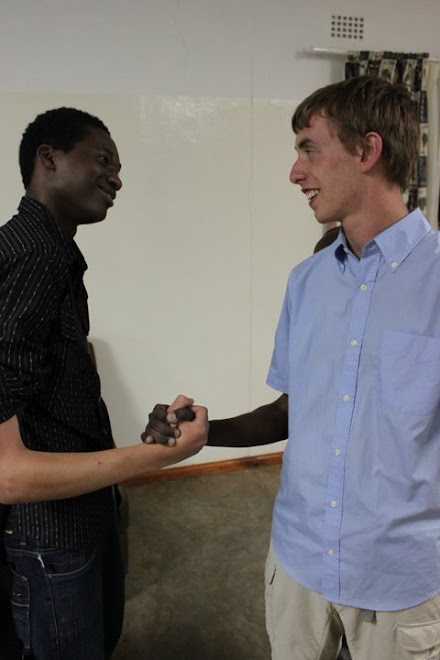
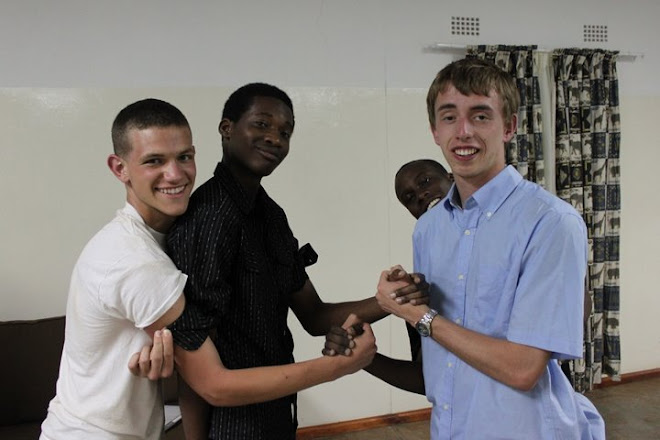
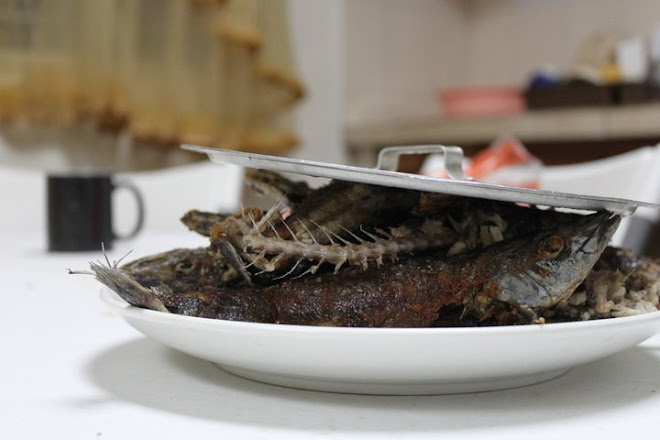
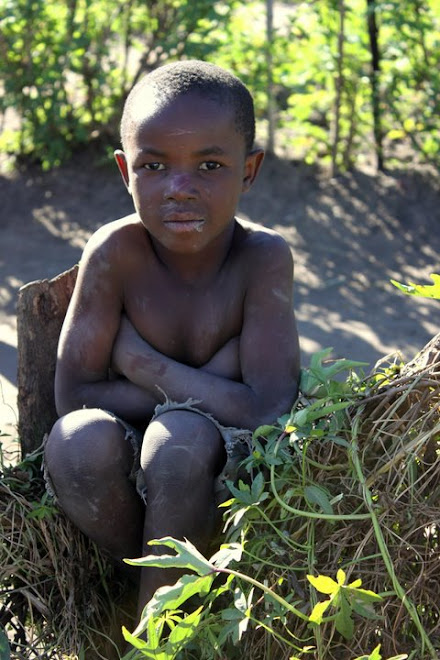
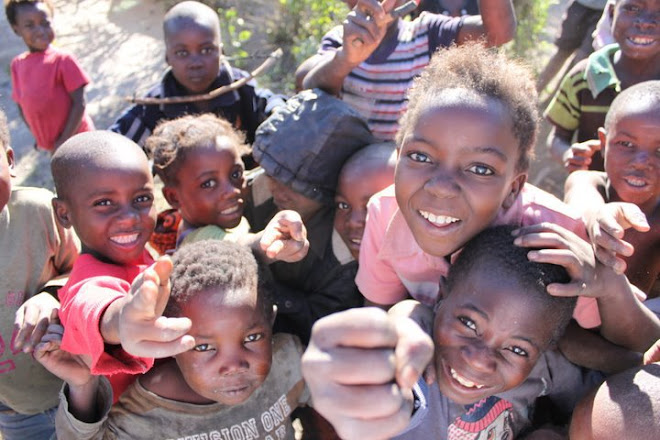
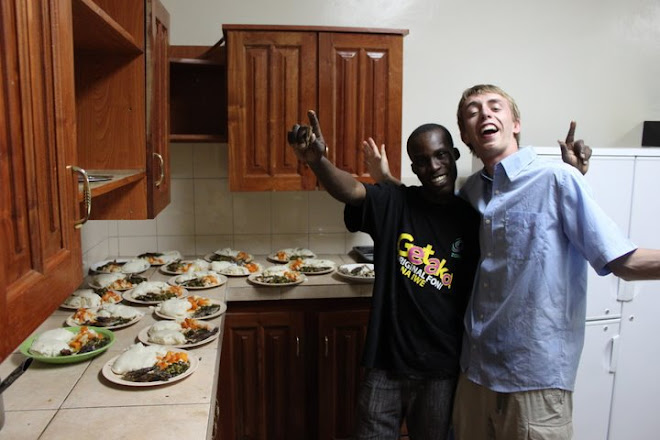.jpg)
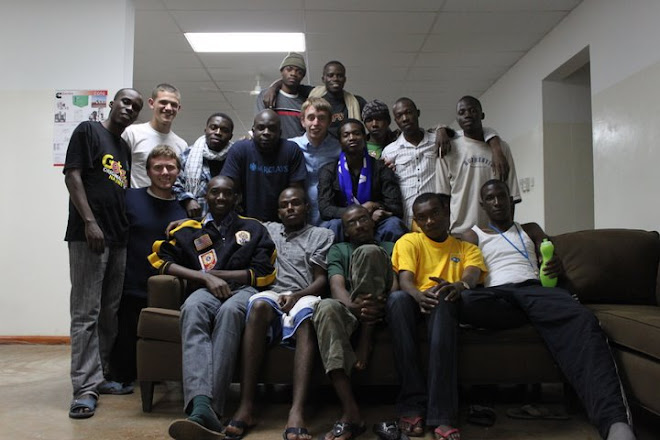
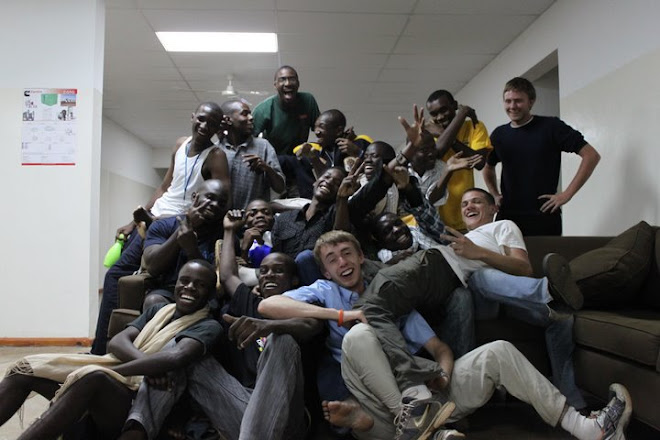

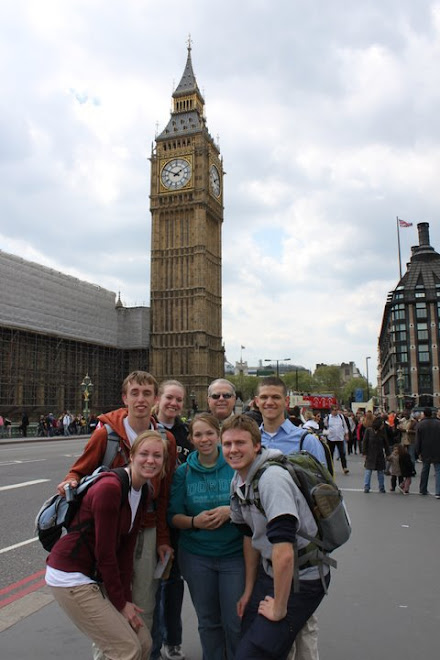
No comments:
Post a Comment